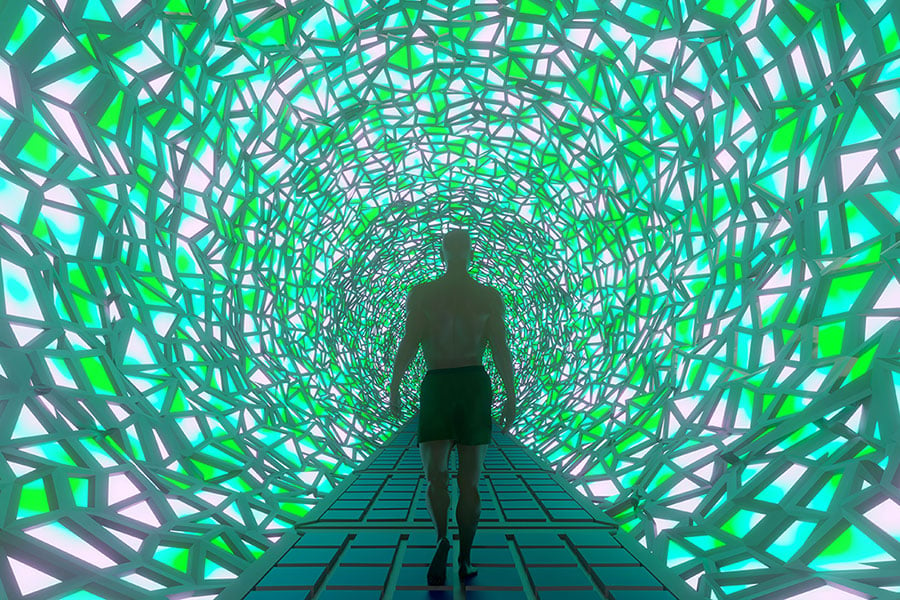On Monday (Dec. 8), UK regulators approved the first-ever clinical trial investigating N, N-Dimethyltryptamine (more commonly known as DMT) for depression. The trial will be the first looking at the therapeutic benefits of DMT on its own.
The research will likely begin in the early part of next year, reports The Guardian. Scientists will first administer DMT to healthy participants who have never taken a psychedelic before—a common practice in research to ensure the drug is safe—before it’s administered to 36 patients with clinical depression.
The research will be modeled after the studies administering psilocybin, the psychoactive component in shrooms, to subjects at institutions like Johns Hopkins, NYU, and Imperial College London. Participants in the trial will receive a psychotherapy session both before the DMT experience, to prepare, and afterwards, to process what happened during their trip.
Up until now, there’s only been one clinical trial looking at the therapeutic potential of DMT. It looked at the potential of ayahuasca, which contains DMT in it, for treatment-depression. The study which had just 29 patients found that a significant percentage of the patients who received ayahuasca, as opposed to the placebo, saw improvements in their depression following one trip.
Carol Routledge, chief scientific and medical officer at Small Pharma, the neuropharmaceutical company conducting the trial with Imperial College London, tells The Guardian that, in addition to major depression, they’re hopeful DMT could be a treatment for PTSD, obsessive compulsive disorder, treatment-resistant depression, and, perhaps, even substance abuse.

DoubleBlind is a trusted resource for news, evidence-based education, and reporting on psychedelics. We work with leading medical professionals, scientific researchers, journalists, mycologists, indigenous stewards, and cultural pioneers. Read about our editorial policy and fact-checking process here.

DoubleBlind Magazine does not encourage or condone any illegal activities, including but not limited to the use of illegal substances. We do not provide mental health, clinical, or medical services. We are not a substitute for medical, psychological, or psychiatric diagnosis, treatment, or advice. If you are in a crisis or if you or any other person may be in danger or experiencing a mental health emergency, immediately call 911 or your local emergency resources. If you are considering suicide, please call 988 to connect with the National Suicide Prevention Lifeline.



